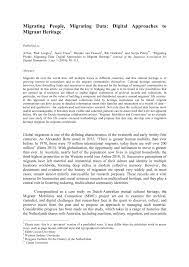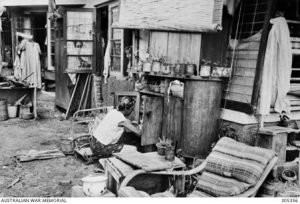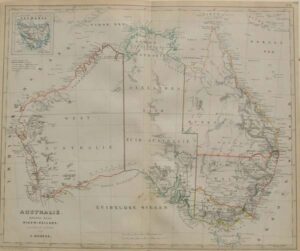
The Dutch Toponymic Legacy in Australia
A country’s toponyms has many hidden complexities. For example, some name-forms can deceive theunwary in terms of their origins and meanings. Australia’s toponymy is a good case in point.Many of Australia’s toponyms are transparent as to their etymologies, such as, Port Macquarie (NSW),Sandy Bay (TAS), whilst others are more opaque,
Pioneering Dutch settlers in the 1920s-In search of utopia
By Diane Gabb Introduction Much has been written about the large numbers of Dutch migrants who sought a new home in Australia after the devastation of World War II when over 200 000 citizens had lost their lives and the failed Netherlands economy had little to offer but emigration propaganda. Australia
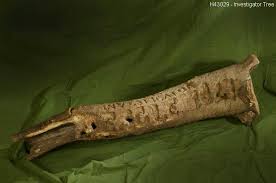
Dutch links with Sweers Island – Gulf of Carpentaria
Sweers Island is an island in the South Wellesley Islands in the Gulf of Carpentaria, Queensland. The island was given its European name by explorer Matthew Flinders on 16 November 1802 after Salomon Sweers, a council member of the East India Company at Batavia who was one of those who

Thank you DACC website users – website statistics
We are excited to share with you our latest website statistics, which serve as a resounding vote of confidence in the digital strategy we embarked upon four years ago. This snapshot, taken on July 7th, offers a comprehensive overview of our website’s performance over the past 28 days. Your continued
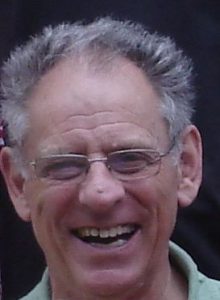
Associate Professor Klaas Woldring – new article: A Republic needs major political system change.
This article is about Associate Professor Klaas Woldring, a retired academic and longtime member and board member of the DACC. The article contains a short biography of Klaas, and outlines some of his academic work and his interests in retirement. Biography Klaas Woldring was born on 2nd July 1934 in
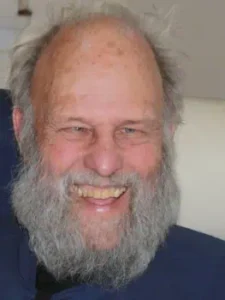
The colourful life of Jan de Voogd
Johannes Jan Nicolaas de Voogd, known as Jan, was born in January 1932 in Japan to Dutch parents, Nicolaas Arie Johannes (Niek) de Voogd (1899-1977) and Amarintia Clasina de Vries (1903-1998). Jan’s parents married in 1930 in Kattendijke in Zeeland, the Netherlands. At the time his father Niek was an
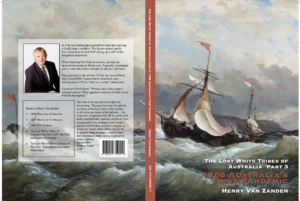
1766 Australia’s First Pandemic
After publishing ‘The Lost White Tribes of Australia‘ Part Two, the author Henry van Zanden realised that the Victorian chapters deserved a more thorough investigation and its own book dedicated entirely to the smallpox outbreak in Victoria and NSW. In Victoria, he explored the South-western districts especially Lake Condah and
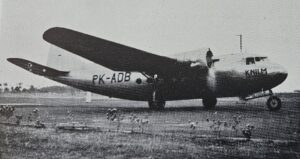
Three WWII emergency landings of Dutch planes in the NT in one day
On February 28, 1942, Japanese troops rapidly advanced through northern Java, quickly occupying airfields and towns. Within hours, they were only 50km from Andir Airport (Bandung) in West Java, where five civilian Royal Netherlands Indies Airways (KNILM) planes were based. Only the next day did the Dutch Government in Exile
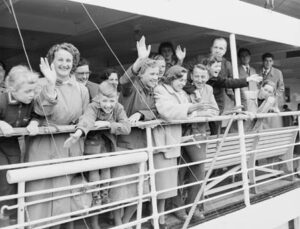
Dutch Women in Australia
In this paper Dr. Nonja Peters explores the manner in which Dutch women, who left the Netherlands at various times during the postwar period, negotiated and carved out an ‘identity’ and satisfied their need for a sense of belonging in Australia. The interpretation derives its conclusions from oral history interview
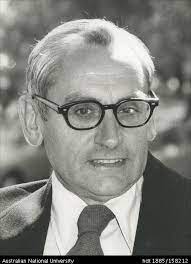
Pastor Hans Mol’s Life, Career, and Contributions
Biography Johannis Jacob “Hans” Mol, (14 February 1922 – 26 November 2017) a notable sociologist of religion, was born in Rozenburg. His early academic pursuits at the University of Amsterdam were disrupted by World War II when he refused to pledge allegiance to the Nazi party. Consequently, he was forced
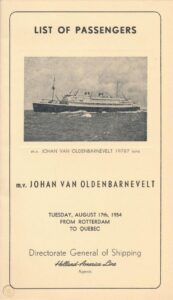
Where to find Shipping Lists – Passenger arrival records?
The National Australian Archives (NAA) holds a large number of passenger arrival records. These records indicate how people moved into and out of Australia. You can search these arrival records in the NAA collection. This includes detailed passenger records for arrivals and departures at all Australian ports from 1924. This
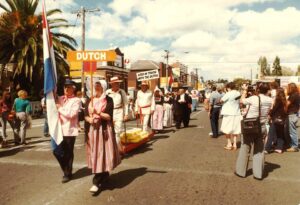
The Dutch in Geelong
Dutch Clubs In 2024, the Dutch population in Geelong comprises of 1400 people. In the early 1950’s they established the Geelong Dutch Club, which has since grown to 10 active Dutch clubs servicing the Geelong Region, they are: • Swallows Karnival Club• The Rocket Club• Micare/ Dutchcare• 50 plus Club•
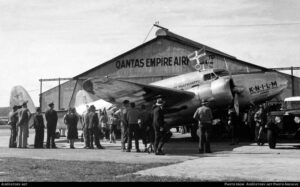
WWII Dutch Lockheed crash landed near Katherine
The following is a translation of a story recorded in the book: “De KNILM vloog door..“ (The Royal Netherlands Indies Airways continued to fly) On Thursday, March 26, 1942, a Lockheed Super Electra SE-14 PK-AFM operated by KNILM (Royal Netherlands Indies Airways) failed to arrive at its destination of Batchelor
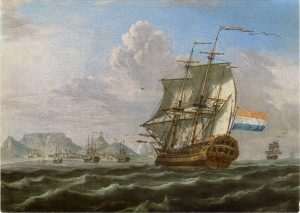
First Dutch contacts in Australia – North west coast of Australia 1643 to 1688
[North West Cape to Cape Londonderry] Tasman’s Voyage of 1643 Documentary Source other than original Journal Witsen, N 1705Noord en Ooste Tartarye,Amsterdam: Francois Halma, pp.175-6. p.175In latitude 190 35’ and longitude 1340 natives who appeared in great numbers threw stones at the people the Dutch sent ashore in 1643; these
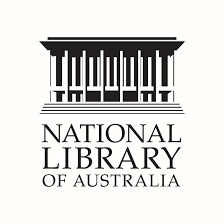
Interviews and information of Dutch WWII veterans and related information
Dutch war veterans in Australia oral history project [sound recording] The aim of this project “is to collect interviews that will recapture the life experiences of a representative group of Dutch veterans in Australia. Most of these veterans served with the Royal Netherlands Army in the Netherlands East-Indies (NEI) during
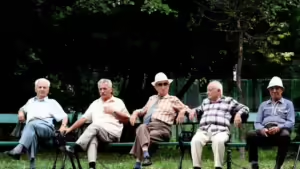
Projected Dutch Aged Stats NSW 1981- 2001
The following text is from a booklet published by the Federation of Netherlands Societies Ltd. in February 1985. The research for this booklet was done by Mijntje Hagen. The Dutch NSW Nursing Committee is actively carrying out a feasibility study regarding the establishment of a nursing home or, alternatively, the provision of

DACC – Primary Research Projects
The following breakdown provides a comprehensive overview of completed and ongoing research projects in the field of DACC. Allies in a Bind: Australia and the Netherlands East Indies in the Second World War Australia Explained: A Site for Newcomers and Old Hands Children Born on Ships En Route to Australia
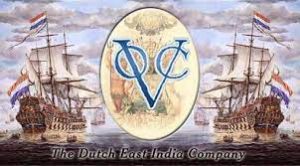
First Dutch contacts in Australia – North coast of Australia 1636 to 1705
[Cape Londonderry to Norman River] Gulf of Carpentaria and Arnhem Land The coast of Arnhem Land was mapped by the Dutch in the “Arnhem” skippered at that stage by Willem van Coolsteerdt in 1623 but there are no accounts of what transpired during that section of their voyage. Voyage of
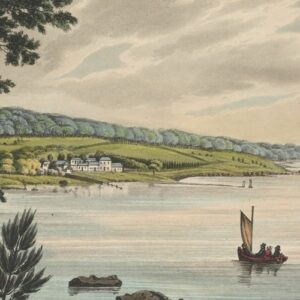
Dutch spy woman involved in the decision to start the NSW penal settlement in 1788?
Margaretha Wolters, also known as Marguerite Wolters, was an intriguing figure in 18th-century espionage. Her clandestine activities appear to have played a pivotal role in shaping British decisions during that era. Amazingly she appeared to have run a European espionage network, first with her husband but after his death on her
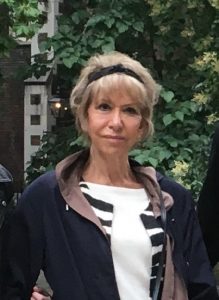
Conference Papers and Keynote addresses by researchers
The following overview has been compiled by Dr. Nonja Peters Papers on Dutch culture and heritage by Nonja Peters 2016: Opening and closing/summing up speeches at the NIAS LORENZ International Workshop on Digital Humanities – Conceptualising a model for the Digital Preservation of Immigrants Cultural heritage, 22 and 26 August

John Berends: A Life of Innovation and Service in Australia’s Agricultural Landscape
John (Jan) Berends was born in 1937, in a village near Zwolle, where he attended high School (HBS – B). After successfully completing his secondary schooling, he was conscripted into National Service, although not quite voluntary, serving for 21 months. He obtained the rank of sergeant and was discharged in
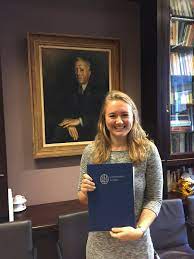
We were the ones that integrated’:Dutch post-war migrant children in Australia
A research on the change in transnational ties of Dutch post-war migrant children in Australia On November 1, 2018 Anne Brehler defended her Master thesis ‘We were the ones that integrated’: Dutch post-war migrant children in Australia. She got cum laude Congratulations. This research focuses on children of post-war Dutch
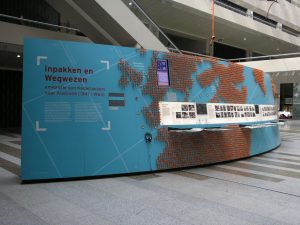
The preservation and digitalisation of Dutch- Australian Migrant Registration Cards
The preservation and digitalisation of Dutch- Australian Migrant Registration Cards Over the decades, the Netherlands Embassy and Consulates in Australia maintained a card system documenting migrants from the Netherlands. The system contains over 55,000 cards, representing 80-90% of Dutch people who emigrated to Australia between 1946-1991. In 1998, The Consul-General
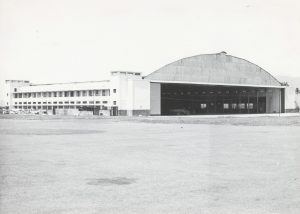
‘Albury rescue’ repeated during WWII in the Netherlands East Indies
The Dutch and their WWII Allies were totally unprepared for the rapid advances of the Japanese army. Nobody had expected that Singapore would fall within 10 days, and in no time, they invaded the Netherlands East Indies (NEI). Despite the rapid progress, the Dutch Government-in-Exile in London did not allow
The DACC Research Team
We proudly present our DACC Research Team. The team is involved in: The DACC Research Team includes.:
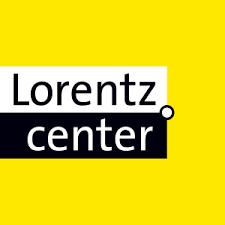
Migrant (R)e-collections- Proposal for a workshop (historic)
All over the world migrants have left multiple traces, deep traces that are indispensable forthe fostering of heritage communities and for research in the humanities and social sciences.Yet the growing societal demand for cultural services and the increasingly insufficientresources available to manage migrants’ cultural heritage is creating a gap —
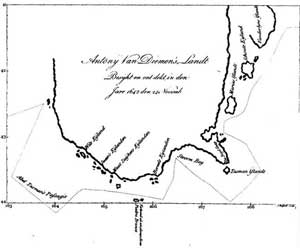
Abel Tasman Landing Site – Tasmania 1642
The Tasman expedition left Batavia (Netherlands East Indies, now Jakarta, Indonesia) on 14th August 1642 with two vessels, the Heemskerk with a 60-man crew and the Zeehaan with 50 men on board. They first called at Mauritius, where they stayed for a month-long repair to both ships. Intending to sail
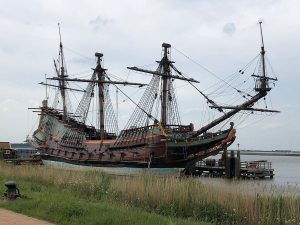
First Dutch contacts in Australia – Tasmania 1642 to 1772
Blackman Bay and East Coast of Tasmania 1642 Tasman’s Voyage of 1642 Journal – Abel Tasman Tasman, A J 1898Abel Janszoon Tasman’s Journal, J E Heeres (comp. and trans.),Amsterdam: Frederick Muller. p.15 [Report of Pilot-Major and Second Mate, 2 December 1642]They [shore party] had heard certain human sounds, and also sounds nearly
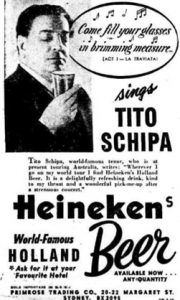
Heineken beer has been on tap in Australia since 1884
Pierre van der Eng It may appear that Dutch multinational beer brewer Heineken has long tried to carry the proverbial coal to Newcastle, because its beer has been on sale in Australia since 1884. In October that year, an advertisement of trading company Boult Bros in Adelaide announced the sale
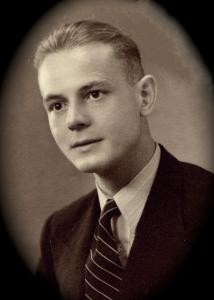
Dirk Drok and the discovery of the Batavia
Dirk Drok (Dalfsen, Netherlands 1915–1988), Perth) and his wife Kitty Isabella Theodora Uitenhage de Mist-Barkey (Java 1921–2001 Perth) lived in Java, Netherlands East Indies NEI (now Indonesia). After the Japanese had occupied the NEI, Dirk and kitty both – separately – ended up in Japanese Camps. There is an extensive
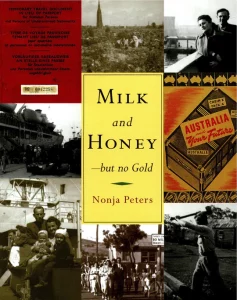
Milk and Honey – but no Gold
By Dr. Nonja Peters Milk and Honey – but no Gold is the story of those who left behind their country of birth, and everyone and everything they knew, to become part of Australia’s mass migration scheme in the years following World War II. Some were homeless and displaced refugees from

Philips factory in Newcastle produced almost all Australia’s electric lamps for 70 years
Pierre van der Eng Dutch firm NV Philips Gloeilampenfabrieken exported its incandescent lamps to agents in Australia since 1912. Its lamp sales increased quickly during World War I, when Australian imports form the UK dwindled. In 1926 Philips established its own subsidiary company in Sydney: Philips Lamps (Australasia) Ltd. It
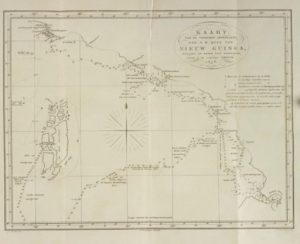
Early nineteenth century English/Dutch rivalry in Eastern Indonesia and Australia
This article is about the Dutch seizure of part of New Guinea in 1828. The English activities in Northern Australia played an important role in this. The author of the article is Jeroen Overweel. He is engaged in cultural heritage participation and is an independent researcher on Indonesian, Melanesian and
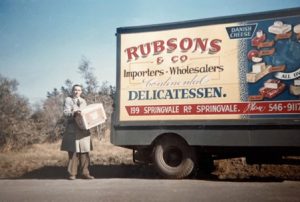
Rubens Family and Rubsons – Dutch Food Wholesalers in Melbourne
Ruben (Ruud) Rubens Ruben was born in Amsterdam on 3 September 1917 and died in Melbourne on 7 November 1993. After his highschool (MULO) he became a bicycle dealer and sales representative. He loved sailing on the rivers and were involved with the swim clubs and soccer clubs where Ruud
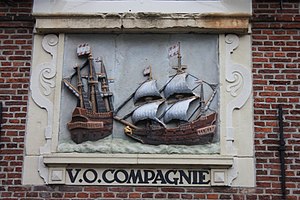
First Dutch contacts in Australia – Cape York and Torres Strait 1606 to 1643
RELATING TO: The Voyage of the Duyfken – Willem Janszoon (Master) and Jan Lodewijkszoon van Rosingeyn (Supercargo) , West Cape York Peninsula, Queensland, 1606. Documentary Sources other than original Journals Recording Navigator: J Carstenszoon 1623, taken from:“Summary abstract of the Journal of the … voyage of discovery … with the yachts Pera and
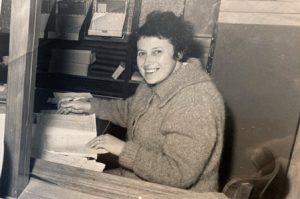
Milly Rubens Schelvis, surviving WWII concentration camps in Europe
Milly Schelvis was born in Amsterdam 11th September 1919. She had a normal, loving childhood although that is set in the background of Holland in the 1920’s and 30’s. They lived in the poor parts of the Jewish sector of Amsterdam and that meant poor housing, hunger and dreadful filth
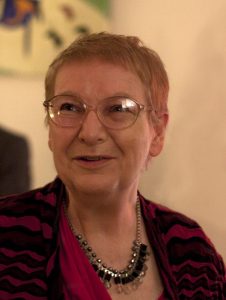
Marianne Pietersen interviews herself and others in Brisbane
I’ve been doing interviews of Dutch migrants for the Dutch Courier newspaper since a couple of years, and prior to that I wrote many articles about events in my retirement village, or at the Dutch Club in Qld, or Dutch activities in the ACT. But now I’ve been asked to
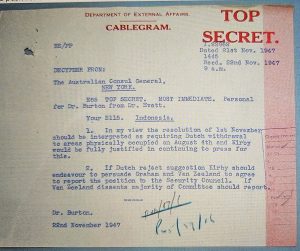
Links to declassified WWII Australian Documents re the Netherlands East Indies
Researched by Ruby Todorovski, researcher at the University of Queensland. Source: National Archives of Australia. Netherlands East Indies Commission for Australia and New Zealand Netherlands East Indies Government-in-Exile in Australia (1944-1946) Netherlands Forces in Australia WWII Evacuees from Netherlands East Indies recuperating in Australia after WWII Migration and Repatriation issues
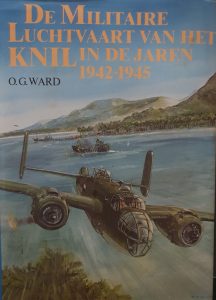
Netherlands Forces in Australia WWII
Declassified documents from the National Archives of Australia, researched by Ruby Todorovski, University of Queensland Links to other declassified WWII Australian Documents re the Netherlands East Indies Military Command After the surrender of the Dutch military in the Netherlands East Indies to the Japanese in March 1942, the Dutch military
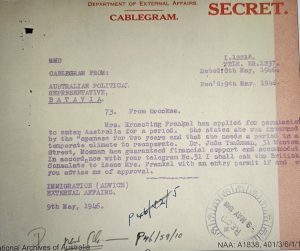
Migration and Repatriation issues after the liberation of NEI
This file, researched by Ruby Todorovski researcher at the University of Queensland includes documents regarding people who wanted to migrate to Australia after the war and issues regarding the repatriation of service people. See also: Evacuees from Netherlands East Indies recuperating in Australia after WWII Links to declassified WWII Australian
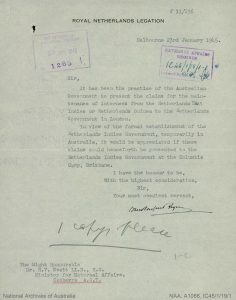
Various WWII Diplomatic Australian documents
All files below were researched by Ruby Todorovski, researcher University of Queensland Netherlands East Indies, Transfer of Government Officials to Australia – 1942 7th March 1942, Dr van Mook, van Oyen and van Plas arrived in Perth Major-General Van Oyen in charge of postwar reconstructions in NEI 26/10/43 Red Cross
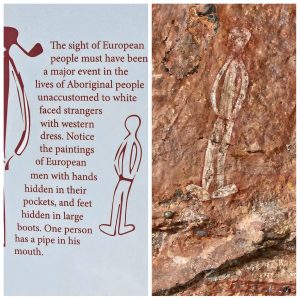
South coast of Australia to 1772 and beyond
Although part of the south coast, from Cape Leeuwin to around Fowlers Bay, was first mapped in 1627, there are no documented accounts of any visits until Vancouver entered King Georges Sound on 29 September 1791, staying until 11 October 1791. While extensive investigation were undertaken in the area, and
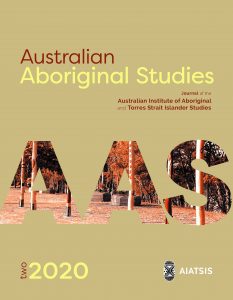
Discussion on Dutch influence on the Nhanda language.
Nhanda is an Aboriginal language of Western Australia, once spoken along the coastal strip from possibly as far south as Hill River north through to Champion Bay and the mouth of the Murchison, up to country just south of Shark Bay. There has been very little work on Nhanda until

The role of Australia in Indonesia’s independence. Declassified secret docs from the Australian Government.
The declassified original secret and top secret documents are in the pdf file at the end of this article. Change of support Australia promptly and unconditionally welcomed the Dutch after the fall of the Netherlands East Indies (NEI) in 1942. They wholeheartedly supported the establishment of the NEI-in-exile on their
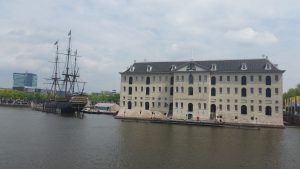
First Dutch contacts in Australia – Lower west coast – cape Leeuwin to Swan river 1658 – 1697
Elburgh 1658 Documentary Source other than original Journals “Letter of the Governor-General and Council to the Managers of the VOC December 14, 1658” in J E Heeres 1899The Part Borne by the Dutch in the Discovery of Australia,London: Luzac and Co., p.81. p.81the skipper, together with one of the steersmen,
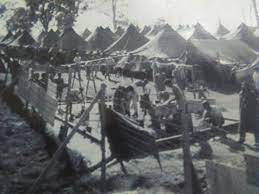
WWII Camp Victory Casino
After the Japanese invasion of Indonesia in 1942, the Dutch fled to Australia taking with them Indonesian soldiers, sailors, government officials and more. The Dutch Government made a deal with the Australian Government which gave the Dutch extra-terrestrial rights over many Indonesian refugees, declaring several former army camps as Dutch
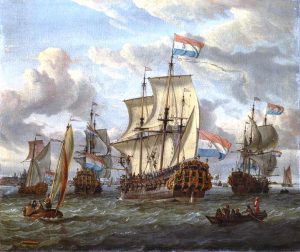
VOC vessel names: what naming patterns reveal about the name-givers’ mindsets
By: Jan Tent Studies of proper names have revealed naming patterns which may provide insights into the attitudes and values of the contemporaneous name bestowers. This essay analyses the names conferred upon thevessels of the United East India Company or Vereenigde Oostindische Compagnie (VOC), in order to ascertain whether there
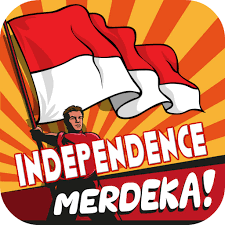
Merdeka Down Under? Indonesian Civilians and Military Personnel in Australia(1942–1949)
This thesis from Dr. Judith Mirjam Rozeboom examines the lives and treatment of the Netherlands East Indies (NEI) people who resided in Australia during WWII and their return to their home country after the war. It compares the lives before, during and after the war of European Indonesians and indigenous
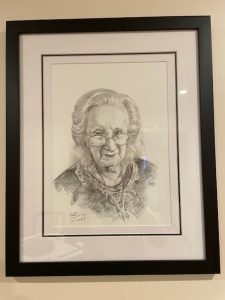
Petronella Jacoba Wensing OAM
Petronella Wensing (1924-2023) was a Dutch migrant to Australia who passed away in 2023. Below is an obituary written by her son Ed (posted with permission). A short story about Petronella was published in The Canberra Times: The Canberra Times also published a shortened version of Ed Wensing’s obituary for
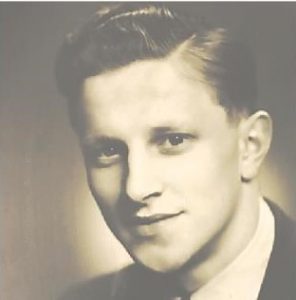
Charles Lambert Betz – The economic integration of Dutch migrants in Australia
Born: 3 June 1930 (Limburg, The Netherlands)Died: 12 January 2018 (Canberra) Charles was a demographer and public servant who served in Papua New Guinea (1967-72) and Australia thereafter.He was a proud and active member of the Australian Dutch community. Driven mostly by the desire to improve their material position Dutch
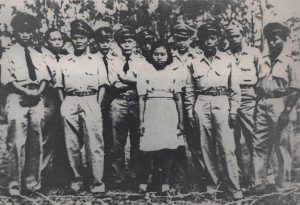
Coosje Ayal – guerrilla fighter studied nursing in Brisbane
Coosje Ayal, born in 1926 in the Moluccas, Western New Guinea, became a notable figure for her resistance efforts during World War II. Adopted by her aunt and uncle, who was a civil servant of the Dutch colonial government, she attended a Dutch school and learned the language. When the
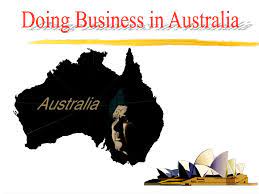
More than 150 Dutch companies established subsidiary operations in Australia
By: Pierre van der Eng Several Dutch companies have operations in Australia today. The members of the Netherlands Chamber of Commerce in Melbourne and Dutchlink in Sydney include Dutch mastheads like Rabobank, Randstad, ING, Heineken and Vopak. Australia has long been relatively open to inward investment by foreign companies. In
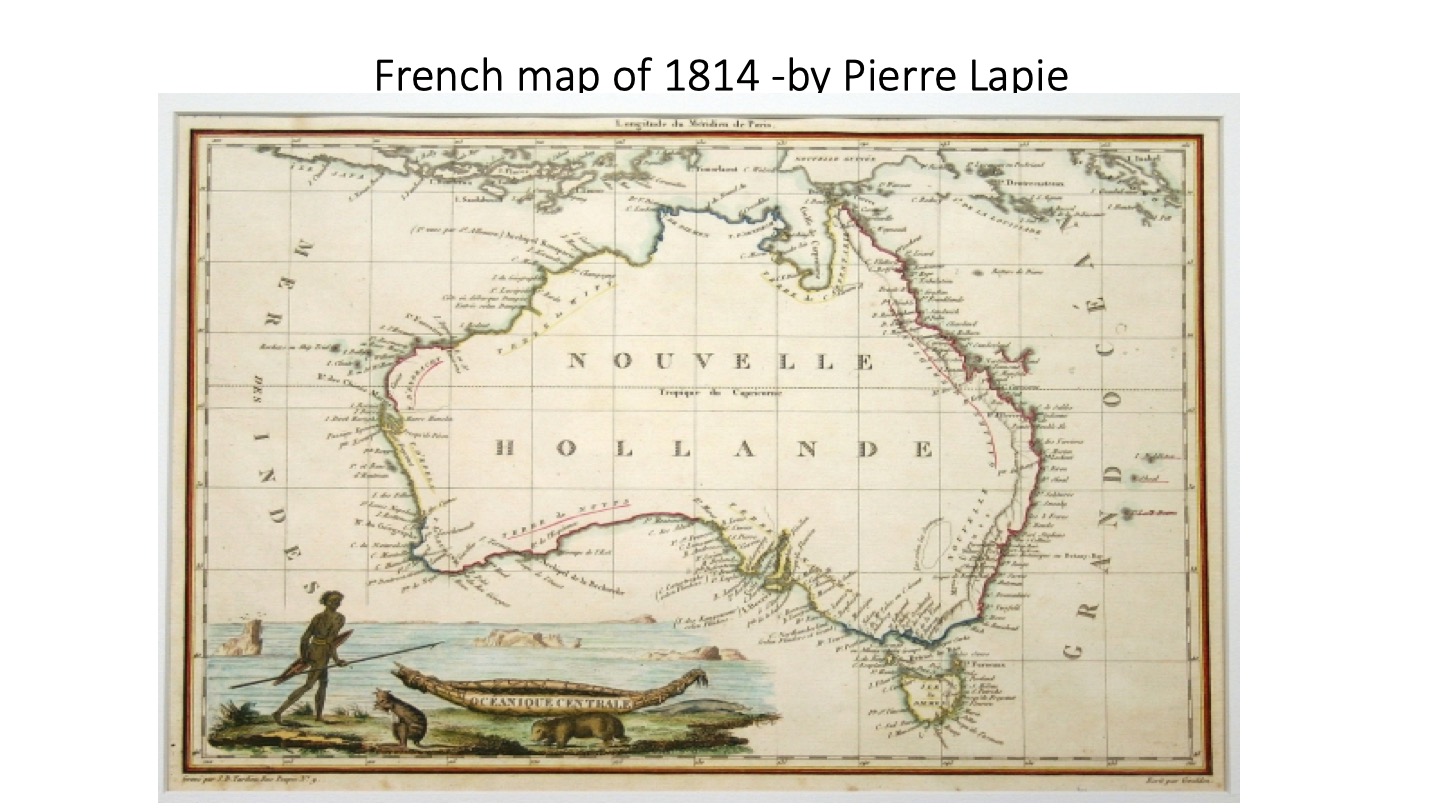
Dutch Australians at a Glance (DAAAG)
Introduction DAAAG was created to be an accessible, easy to navigate, multimedia internet service dedicated to the sustainable digital preservation of Dutch Australians’ cultural heritage – for use by scholars, researchers, bureaucrats, journalists, Dutch individuals and other digital end users worldwide. DAAAG is an initiative of the History of Migration
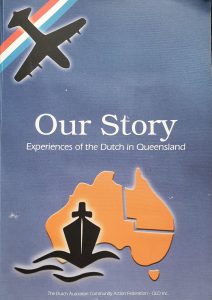
Our Story – Experiences of the Dutch in Queensland
To ensure that the stories of Dutch migrants would be preserved for future generations, the former Dutch-Australian Community Action Federation Qld Inc. (DACA) published a 208 page book ‘Our Story — Experiences of the Dutch in Queensland’ in 2001. Editors: Annelies Zeissink, DACA-President and Rob-Jan Mynarends. The book presents personal
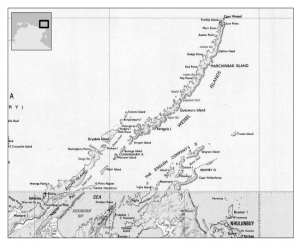
The cartographic migration of Wesel(s) Eijland – Dr. Jan Tent
The Wessel Islands group off the north-eastern coast of Arnhem Land has a rather abstruse history in terms of its naming and ultimate cartographic location. Cartographic evidence, and some primary documentary evidence points to a Wesel(s) Eijland initially referring to an island off the southern coast of present-day West Papua.
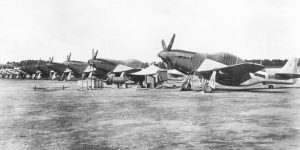
The NEI Personnel & Equipment Pool Squadron Canberra – Bundaberg
The establishment of the NEI Personnel & Equipment Pool (PEP) Squadron, initially stationed at RAAF Base in Canberra, resulted from the need to allow Netherlands East Indies (NEI) crews to recover and prepare for upcoming operations after completing their operational tours. Additionally, they required a base to accommodate spare aircraft
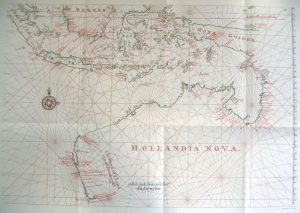
The last VOC exploration voyage to Australia – 1756
The text below is a brief summary of a report titled “EXPLORATORY VOYAGE OF THE SHIPS RIJDER AND BUIS, COMMANDED BY LIEUTENANT JEAN ETIENNE GONZAL AND FIRST LAVIENNE LODEWIJK VAN ASSCHENS, TO THE GULF OF CARPENTARIA.” This report was submitted by Gerrit de Haan, the “Master Cartographer” at Batavia, on
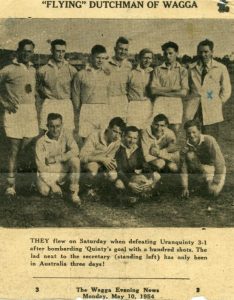
Clogball: Remembering the 38 Dutch football clubs of Australia
From the book Clogball – The Dutch and Soccer in Australia. A migrant Story. By Adam Muyt If you think the Dutch have never won a World Cup you’re mistaken: Holland won a World Cup back in the 1950s. Huh? More than 1.25 million European immigrants poured into Australia in the
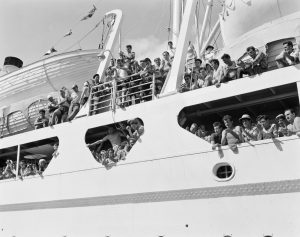
Results DIMEX (Dutch Immigrant’s Experiences) surveys – 2004 and 2018
In 2004, volunteers from the DACC undertook the first Dutch Immigrant’s Experiences (DIMEX) survey. This first survey aimed to investigate several aspects of Dutch emigration to Australia. Key topics covered by the survey included: main reasons for emigration; % house ownership, % naturalised as Australians, when and why; membership of
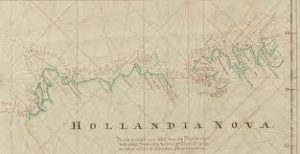
The 1705 van Delft expedition to northern Australia: a toponymic perspective – Dr. Jan Tent
During the 17th and 18th centuries the Dutch were quite active in exploring the western and northern coastlines of the Great Southland. Of one of these expeditions, conducted by Maerten van Delft in 1705, intelligence is limited and it is infrequently mentioned in the canon of Australia’s exploration. The only
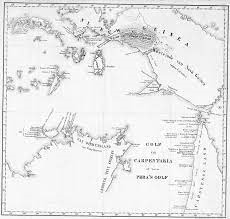
The curious Van Dijk map of the Gulf of Carpentaria – Dr. Jan Tent
In 1859 the Dutch historian, L.C.D. van Dijk published a book on the voyages of discovery made by Jan Carstenszoon in 1623 and Jean Etienne Gonzal in 1756 to the Gulf of Carpentaria. The book contains a commentary of the two voyages as well as a copy of Carstenszoon’s journal.
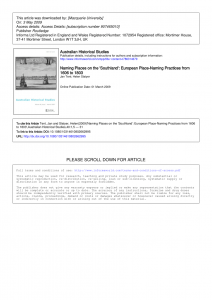
Naming Places on the ‘Southland’: European Place-Naming Practices from 1606 to 1803
The history of charting Australia’s coastline is well documented from most perspectives,but not from a toponymic standpoint. Between 1606 and 1803, some nine hundredEuropean placenames were bestowed along the Australian coast. Authors Jan Tent and Helen Slatyer report here on an investigation and analysis of the place-naming practices of the
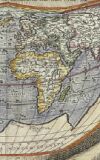
Naming places: Dutch voyagers and toponyms in the fifth part of the world, 1616-1722
Some of the first Europeans to venture into the southern Pacific Ocean were the Dutch during the 17th and early 18th centuries. The linguistic legacy of these expeditions can be found in a small number of Dutch words adopted into Polynesian languages as well as toponyms bestowed by them. The
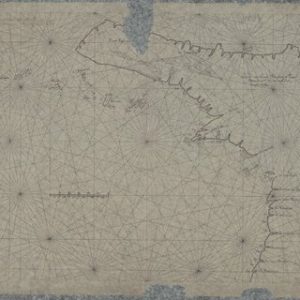
Moent and Dubbelde Ree: Two of Australia’s First Recorded Placenames – Dr. Jan Tent
The year 2006 marked the quatercentenary of the first known European charting of any part of the Australian coastline, when the Dutch mariner Willem Janszoon explored 300 kms of the north-west coast of Cape York Peninsula. He bestowed seven placenames, two of which, Moent and Dubbelde Ree have ambiguous meanings
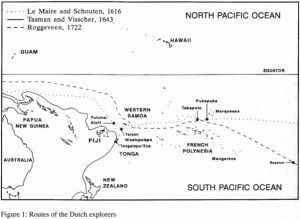
Early Dutch loanwords in the South Pacific
The Polynesian islands share in common the fact that the first European language they came into contact with was the English brought first by Captain Cook, spread by whalers and traders and later consolidated by missionaries. The purpose of the paper below is twofold. First, the authors will present evidence
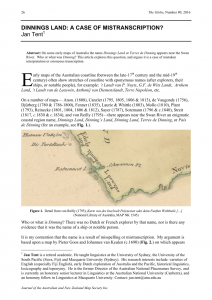
Dinnings land: a case of mistranscription? – by Dr. Jan Tent
On some early maps of Australia the name Dinnings Land or Terres de Dinning appears near the Swan River. Who or what was Dinning? This article explores this question, and argues it is a case of mistaken interpretation or erroneous transcription. “The crucial word in the description is duyning. What
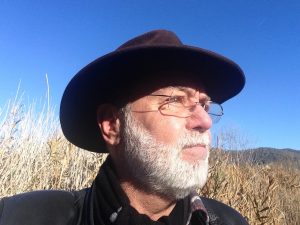
Dutch names in Australia – Linguist Dr. Jan Tent
Dr Jan Tent was born in Amsterdam, his parents originating from Groningen. Jan’s father worked for IBM in Amsterdam. In 1957 his father was made production manager of the IBM typewriter and punch card plant in Lidcombe (Sydney). The appointment was supposed to be for two years but stretched out
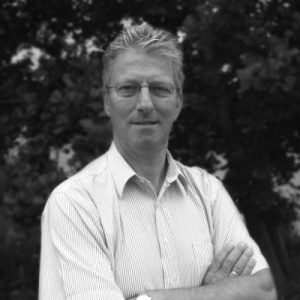
Catalogue of an exhibition (in Groningen) about the history of Australia – 1988
Het onbekende Zuidland naderbij’ by Jaap van der Veen is a catalogue of an exhibition about the history of Australia, the Aborigines and the Dutch explorers and emigrants. It is published by Volkenkundig Museum ‘Gerardus van der Leeuw’ in Groningen in 1988. It contains contributions from Don Grimes and other
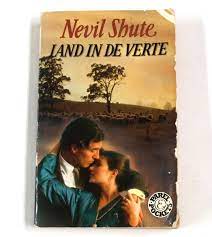
Dutch emigration literature in Australia
In previous months we have highlighted Dutch literature in Australia and we continue this month with another collection of interesting and often forgotten books. However, some will recall nostalgic memories from those who arrives as children or as emigrants from the 1950s and 1960s. Land in de verte – 1952
The DACC Library Collection
The DACC Library has a collection of books, magazines, CD’s, DVD’s and VHS tapes. Most are not yet in the online data base. The table below lists the categories and the number of books and magazines in each category. Please contact the DACC for further information.
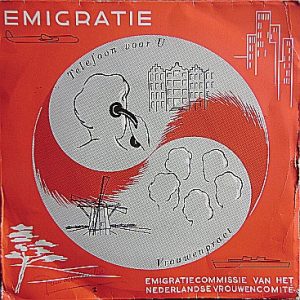
Emigratie Commissie of the Nederlandse Vrouwen Comité
The Emigratie Commissie was a committee of the Nederlandse Vrouwen Comité (NVC – Dutch Women’s Council). The Emigration Commission of the Dutch Women’s Council, was an organisation in the Netherlands that focused on assisting women and families with the process of emigrating to other countries. The committee operated during the

Stichting Landverhuizing Nederland (Foundation for Emigration Netherlands) – 1913-1967
The Nederlandse Vereniging Landverhuizing (Netherlands Association Emigration) was established in 1913 to promote Dutch emigration. It merged with the Emigration Centre Holland (Emigratie Centrale Holland) in 1931 and formed the Netherlands Emigration Foundation (Stichting Landverhuizing Nederland). The foundation was renamed the Dutch Emigration Service (Nederlandse Emigratiedienst) in 1952. The foundation

The Return of Dutch Migrants from Australia, New Zealand and Canada – 1983
The book The Return of Dutch Migrants from Australia, New Zealand and Canada is a research report written by Wim Blauw and Joed Elich and published by the Netherlands Interuniversity Demographic Institute (NIDI) in 1983. The book is based on a survey of 1,200 Dutch migrants who returned to the
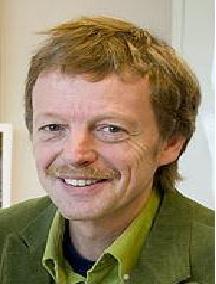
Investigating Lexical Attrition in Long-Term Dutch Expatriates in Australia: A Study on First Language
Dissertation by Ton Ammerlaan (born 1960) Radbout University Nijmegen – 1996 Introduction: Language attrition, the gradual loss of one’s first language (LI) proficiency due to decreased exposure and use, has been a topic of interest in sociolinguistic and linguistic research. This article focuses on the nature of variables influencing lexical
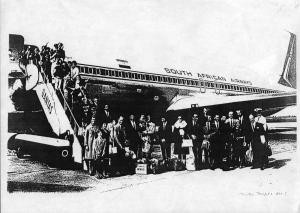
Information from the Dutch Emigration Service – 1953
Nederlandse Emigratiedienst, Australië. Dagelijks leven van emigranten tegen de achtergrond der Australische economie. Recente emigrantenbrieven, aangevuld met enkele belangrijke artikelen, welke de laatste tijd over Australië het licht zagen, themanummer van: Leven en Werken in den Vreemde. Actualiteiten ten behoeve van de Emigratie-voorlichting. Uitgave Nederlandse Emigratiedienst, 12 sept. 1953 This
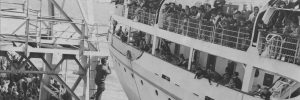
Study: Why potential emigrants cancelled their plans – 1959
Regeringscommissaris voor de Emigratie, Bureau Onderzoekingen, Annulering van emigratie. Een onderzoek bij 500 Australië-units naar de redenen, waarom zij van emigratie afzagen. ’s-Gravenhage: Regeringscommissaris voor de Emigratie, Bureau Onderzoekingen, 1959. This is a title of a report published in 1959 by the Regeringscommissaris voor de Emigratie, Bureau Onderzoekingen (Government Commissioner for Emigration,
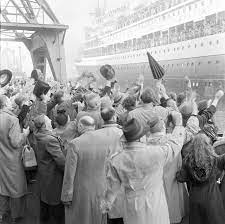
Geschreven portretten van Nederlandse emigrantenpriesters in Australië – 1994
A Book Review: Written Portraits of Dutch Migrant Priests in Australia The book Geschreven portretten van Nederlandse emigrantenpriesters in Australië, translates to Written portraits of Dutch migrant priests in Australia in English. It was edited and adapted by J.W.P. Elferink from the original manuscripts of Theo van der Meel, a

Emigration survey: Inpakken en wegwezen? – 1981
Ministerie van Sociale Zaken, Inpakken en wegwezen? Een onderzoek naar kenmerken en motieven van emigranten naar Australië, Canada en Nieuw-Zeeland. Onderzoek verricht door het Ministerie van Sociale Zaken met medewerking van het Instituut voor Psychologisch Marktonderzoek te Rotterdam en de Nederlandse Stichting voor Statistiek te ’s-Gravenhage. Den Haag: Ministerie van
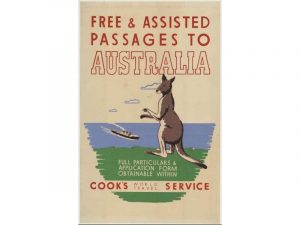
Thesis: De teruggekeerde emigrant (The Returned Emigrant) – 1966
The document De teruggekeerde emigrant (The Returned Emigrant) is an unpublished thesis written by Heikina R. Scholten in 1966. It is a qualitative study on the reasons for return to the Netherlands of Dutch emigrants from Australia for the purpose of information provision. The thesis was submitted to the Haagse
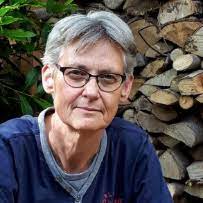
‘Invisibility and selectivity’. Dutch migration in the 19th and 20th century – 2010
Marijke van Faassen is a Dutch historians who has been involved in several research projects and publications related to migration history. Marijke is a senior researcher at the Huygens Institute for the History of the Netherlands, and has a specialisation in (digital) scholarly editing. She has worked on various topics
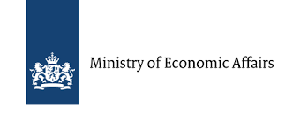
Report of the orientation trip to and through Australia and New Zealand – 1957
A. Drost & B.J. Spitholt, m.m.v. J.M. van Delden, Verslag van de oriëntatie-reis naar en door Australië en Nieuw-Zeeland, typescript, 1957 (Koninklijke Bibliotheek Den Haag, sign. NL 94 H 1000). This is a report of a trip to Australia and New Zealand by three Dutch officials: A. Drost, B.J. Spitholt,
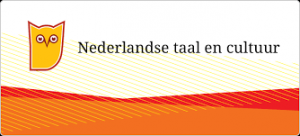
Dr. Cornelis Wouters and the Dutch language
In the 1950s, Dr. Cornelis Wouters advocated for more attention to be given to the culture of the countries from which many immigrants had settled in Australia, in the country’s education system. He argued that this could be achieved by broadening the curriculum to include lessons in languages other than
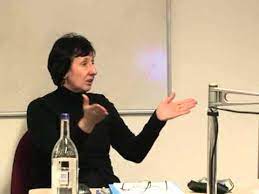
The Effect of Mixed Marriage on Language Shift in the Dutch Community in Australia – 1980
This thesis was written by Anne Pauwels, a linguist and professor. The main focus of the thesis is to examine how mixed marriages between Dutch- speaking and English-speaking Australians impact on the use and maintenance of the Dutch language in Australia, within the family and the Dutch community. The project
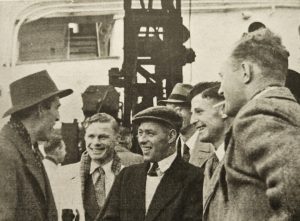
Dairy cows and dairy products in Dutch-Australian emigration literature, 1945-1965
Melkkoeien en zuivel in Nederlands-Australische emigratieliteratuur, 1945-1965 This is the original article by Prof. Ton van Kalmthout with graphics, pictures and source references in Dutch. Below that is a PDF of the article’s English translation. Author: Professor dr. A.B.G.M. (Ton) van Kalmthout – senior-onderzoeker Literatuurgeschiedenis | Koninklijke Nederlandse Akademie van
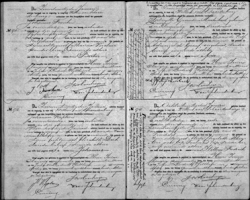
Unpublished transcript: “Emigration from the Netherlands” by Professor Geijl
This particular work is not widely known or may have limited information available, it doesn’t appear in the overview of his extensive list of publications. It is a typescript with handwritten additions, and it is located in the Koninklijke Bibliotheek (National Library) in The Hague, under number NL 94 B
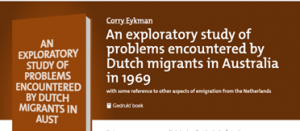
Study: Dutch Migrants in Australia: Challenges and Experiences – 1969
A study conducted by Corry Eykman (Eijkman) in 1969 explored the challenges and experiences of Dutch migrants in Australia. The study found that Dutch migrants faced a number of challenges, including the language barrier, the different climate, the unfamiliar culture, the loneliness of being away from their family and friends,

Dutch Women Share Their Emigration Stories – 1960
A book published by the Emigratie Commissie van het Nederlandse Vrouwen Comité (Emigration Committee of the Dutch Women’s Committee) features writings by emigrant women who share their experiences from afar. The book, titled “Ons tweede huis: Emigrantenvrouwen schrijven van verre” (Our Second Home: Emigrant Women Writing from Afar), was released

Dutch emigration literature with regard to Australia 1946 – 1992
The following list of Dutch emigration literature (in a broad sense) includes book titles that specifically relate to emigration of Dutch people to Australia. The list, compiled by Ton van Kalmthout, does not claim to be exhaustive, but forms a first step towards a further inventory of reading materials available
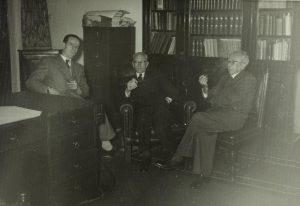
Augustin Lodewyckx introduced the first university course in Dutch in Australia
Augustin Lodewyckx (1876-1964) was a Belgian scholar and professor who made significant contributions to the study of modern languages in Australia. He was born on December 8, 1876, in Booischot, Belgium, the son of Joannes Lodewijckx, a farmer, and his wife, Maria Dymphna Maes. After completing his secondary education in
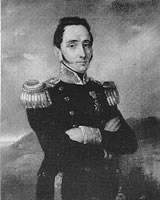
The Colonial Warship the Doerga explored northern Australia (1825-1826)
In the 1820s the Dutch Colonial naval vessel Doerga (Dourga) the Dutch was sent by Netherlands East indies Government to northern Australia to establish Dutch claims to the region and to investigate the trepang trade. The voyages of the Dutch brig of war Dourga, were recorded by its Captain Dirk

Frank Broeze – maritime historian
Franklin Jan Aart Broeze, who went by Frank Broeze, was a prominent maritime historian and academic who was born on January 20, 1945, in Rijswijk, Netherlands. Broeze grew up in the Netherlands and attended Leiden University, where he earned his Ph.D. in maritime history. Frank Broeze emigrated to Australia in
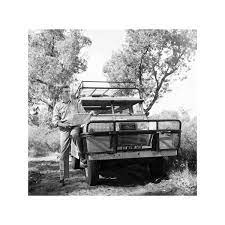
Anthropologist Mark de Graaf
Mark de Graaf came to Australia in 1958. He studied a Claremont Teachers College and the University of Western Australia to become a geology teacher. He took part in the Perth Drama Festival and the first live television show produced in Perth. He also worked ads a part time actor
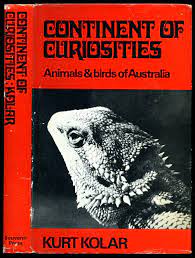
Ornithologist Jonkheer Gerard Frederick van Tets
Jonkheer Gerard Frederick van Tets, also known as Jerry van Tets, was a renowned ornithologist and paleontologist who made significant contributions to the study of birds and prehistoric life. He was born on January 19, 1929, in London, England, to Dutch parents, jhr. Hendrik Barthout van Tets, heer van Goidschalxoord,
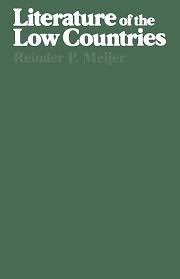
Reindert Meijer on Dutch Literature
R.P. Meijer was born on 18 January 1926 in Amsterdam. He studied Dutch at the University of Amsterdam where he graduated in Dutch language and literature in 1950. He obtained his PhD in Dutch literature in 1958. Meijer has taught and researched at various universities in the Netherlands and abroad.
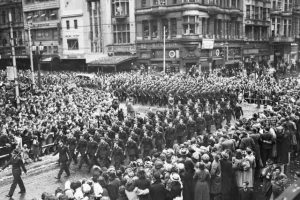
Three unique Dutch movies during WWII from around Australia
Amateur movies made by Mr. Arie Berger. Source Netherlands Ministry of Defence Movie #3 – 1943 Beeldbank – Department of Defence – Netherlands Movie #4 1943 -1944 Beeldbank – Department of Defence – Netherlands Movie #5 1945 -1946 Beeldbank – Department of Defence – Netherlands See also: The Dutch at
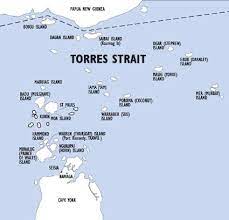
A short overview of the Dutch exploration of Torres Strait
Scroll down and a map shows up with New Guinea connected to Australia but a small missing part on that map shows where in this perspective the Torres Strait could have been. See also: The Colonial Warship the Doerga explored northern Australia (1825-1826) Dutch Explorers in the Gulf of Carpentaria
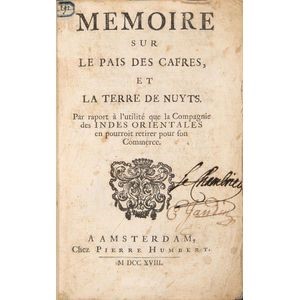
Proposal to establish a Dutch settlement in South Australia (1717)
Jean Pierre Purry was a Swiss explorer who presented a plan to the Dutch Governor General of the Dutch East Indies in Batavia (now Jakarta, Indonesia) in 1717 to establish a settlement in Australia. His plan was to settle in the vicinity of Eyre Peninsula in South Australia. Purry was

‘Little Groningen’ Dutch settlement at Kingston, Tasmania
In 1950, a group of Dutch immigrants arrived in Tasmania and established a settlement in the town of Kingston, located about 12 km south of Hobart. The settlers were mostly from the province of Groningen in the Netherlands, and thus the – now defunct – settlement became known as “Little
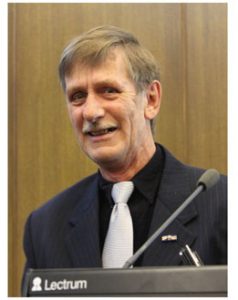
Rupert Gerritsen- influential historian in Dutch-Australian past and Vietnam activist
Rupert Gerritsen (1953 – 3 November 2013). He was born in Geraldton, Western Australia, of Dutch parents. He became an Australian historian who has made significant contributions to the fields of archaeology, anthropology, and environmental history. He has published extensively on the prehistory and history of Australia, particularly in relation
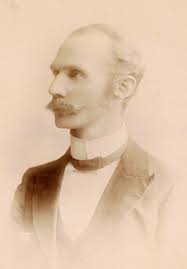
Willem Siebenhaar social activist and writer (1863-1937)
He was born in The Hague on July 28, 1863 and developed a lifelong interest in chess at the age of fifteen and was exposed to Ferdinand Domela Nieuwenhuis – a prominent socialist figure in the Netherlands who served as the country’s first elected socialist Member of Parliament. After graduating
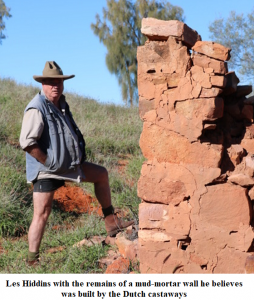
Was there a Dutch colony in Central Australia in the 18th century?
There are a number of stories and myths about a Dutch colony in Central Australia dating back to the 18th century. However, there is no concrete evidence to support the claim that a group of Dutch settlers ever established a colony in the region. The story seems to have originated
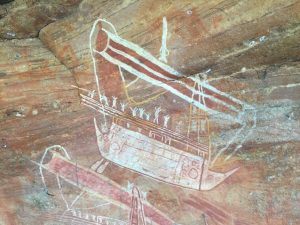
Overfishing and Dutch regulations saw an increase of Makassar fisherman in Australia.
Makassar centre of the trepang fishing Trepang fishing, also known as sea cucumber fishing, is a type of fishing that involves the collection of sea cucumbers, which are a type of marine invertebrate. Sea cucumbers are typically found on the ocean floor and are harvested for a variety of purposes,
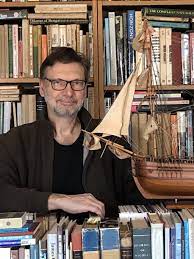
Dr. Edward Duyker, historian, author.
Dr Edward Duyker was born in 1955 to a father from the Netherlands and a mother from Mauritius. His mother has ancestors from Cornwall who emigrated to Adelaide, South Australia, in 1849. Edward’s father Herman, was born in Schaesberg, Limburg and emigrated to Australia in 1950 and arrived here on
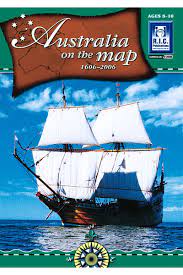
Australia on the Map 1606-2006
Australia on the Map” (AOTM) is the history and heritage division of the Australasian Hydrographic Society (AHS). This website consequently focusses on important themes in Australian hydrographic history and heritage. This includes maritime exploration and the mapping of Australia, and where relevant, New Zealand. As an educational resource, which was
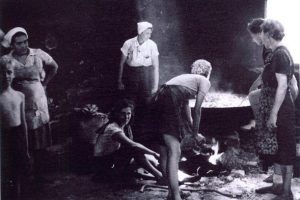
Evacuees from Netherlands East Indies recuperating in Australia after WWII
After the surrender of Japan there were some 100,000 European people in the Japanese camps, many of them were close to starvation. An agreement between Australia and Netherlands East Indies governments led to the formation of the Netherlands Indies Welfare Organisation for Evacuees (NIWOE). The organisation emerged out of the
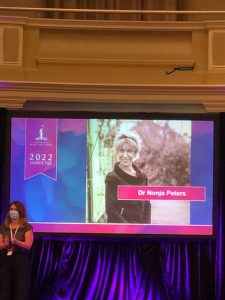
Nonja Peters Dutch historian, anthropologist, museum curator and social researcher.
Dr Nonja Peters is an historian, anthropologist, museum curator and social researcher whose expertise is transnational migration (forced and voluntary) and resettlement in Australia. She is the author of several books, museum exhibitions, journal articles, TV documentaries, and government reports. Her achievements and dedication towards raising awareness of the post-war

Huygens Institute – The Netherlands
The Huygens Institute aims to make Dutch history and culture more inclusive. It also provides access to primary source material and text editions on which to base further analytical and interpretive research. In addition, the Huygens Institute takes the lead in developing innovative methods, tools and sustainable digital infrastructure. The
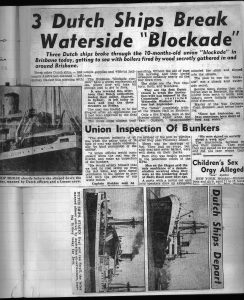
Black Armada: Australian Boycott of Dutch shipping WWII
After the Japanese invasion of Netherlands East Indies, some 20,000 Dutch people fled to Australia, the majority were Indos. They were not well treated and the Australian Unions started to fight for their rights. As they became involved they understood these people wanted independence from the Netherlands. When, after the War, the Dutch wanted to recolonise NEI the Unions blocked all Dutch transport from Australia.
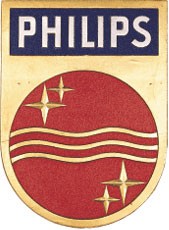
Philips Electronics Pty Ltd was the largest company from The Netherlands in Australia
Temporary display at Juliana Village, Miranda, Sydney – April 2024 Philips Electronics Pty Ltd Pierre van der Eng The predecessor of Philips Electronics Pty Ltd in Sydney was one of the largest Dutch companies that operated in Australia. In 1970 when it had 13,000 employees in various locations in Australia.
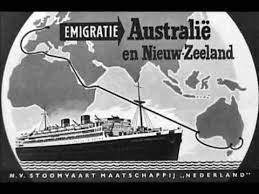
Dutch immigration to Australia, history, stats and other resources
History Already in the 1800 we see Dutch people settling in Australia. A rather famous early immigrant was Willem Hendrik Paling who settled in Sydney in 1853. He established music stores in Sydney and Brisbane, wrote music, was a teacher and a performer. The 1911 caucus lists only 650 Dutch

Dutch involved in marine archaeology in Broome
The Cultural Heritage Agency of the Netherlands (RCE) is currently involved in one project in Australia. In this project, the RCE and the Western Australian Museum in Perth together investigate Dutch amphibious aircraft wrecked in the Australian port city Broome during the Second World War. In the past, the RCE
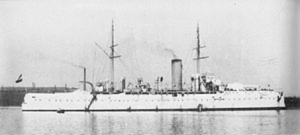
Revealing colonial interview during visit of Dutch Navy to Sydney in 1910
In 1910 the HNLMS Koningin Regentes undertook a cruise to Australia to show the flag. Lieutenant Pieren was interviewed re the security in the region both in regarding to Japan and the situation in the Netherlands East Indies,
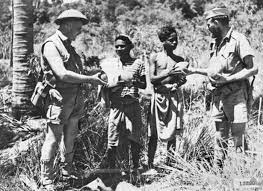
The Battle of Timor – 1942-1943
The Battle of Timor – the Dutch and Australians kept fighting after the surrender of Netherlands East Indies. The bombing of Darwin did bring WWII directly onto the shores of Australia. However, what is less well known is that the reason for the Japanese attack on Darwin and Broome was
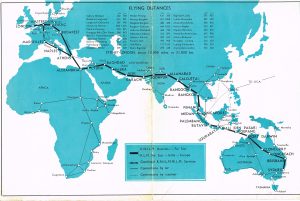
Royal Netherlands Indies Airline – KNILM and its link with Australia
KNILM an early aviation pioneer Koninklijke Nederlandsch-Indische Luchtvaart Maatschappij (in English: Royal Dutch Indies Airways) was the airline of the former Netherlands East Indies (NAI). It was founded on 16 July 1928 as the NILM by a group of 32 Netherlands Indies. KNILM was not a subsidiary of the better-known

The invisible immigrants: Dutch migrants in South Australia
Introduction to the publication (2011). ‘God made the world but the Dutch made Holland’ is an old saying referring to the way the Dutch shaped their nation by reclaiming land. It is with this same sense of determination that the Dutch applied themselves to the task of assimilating into the
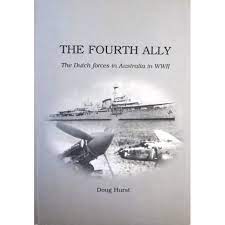
The Fourth Ally – the Dutch forces in Australia during WWII
by Doug Hurst – 2001 The Fourth Ally tells of the Dutch forces who fought from Australia against the Japanese during WW II. Driven by the Japanese from Indonesia (then the Netherlands East Indies), they relocated ships, aircraft and personnel to Australia. They joined with United States, British and Australian
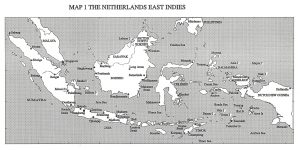
Allies in a Bind – Australia and the Netherlands East Indies in the Second World War
Early in Roger Bell’s book Unequal Allies,he states: ”Relations between the governments of Australia and the United States underwent fundamental changes during 1941-46…Indeed it was not characterized by general bilateral accord on political, defence and economic matters during war time.” These comments can be equally applied to the Dutch/Australian wartime
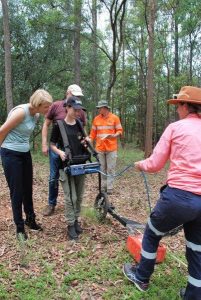
Archaeological research launched at Dutch WWII Camp Columbia Brisbane
Late last year the Honorary Consul of the Netherlands in Queensland Marjon Wind launched the groundwork for the archaeological projected conducted by the University of Queensland at the WWII HQ of the Netherlands East Indies Government-in-Exile at Camp Columbia in Wacol, Brisbane.
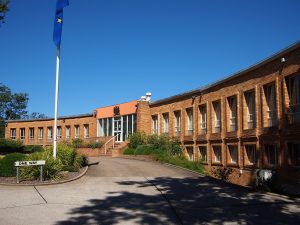
Consuls, Envoys and Ambassadors of the Netherlands in Australia since 1853
Pierre van der Eng, Australian National University It took until 1951 for The Netherlands to establish diplomatic representation in Australia in the form of an accredited ambassador. Depending on the issue, bilateral diplomatic matters were dealt with through the Dutch embassy in London until the 1940s, either through British public
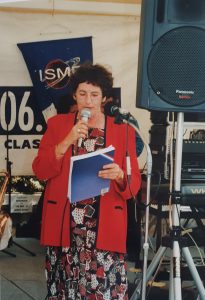
Dutch Migrant History – Queensland
Like everywhere else in Australia there is also a rich history of the Dutch in Queensland. Many Dutch people settled here after WWII. The Netherlands East Indies Government-in-Exile was based in Wacol, Brisbane and that also resulted in Dutch people staying or coming to Brisbane immediately after the war. In
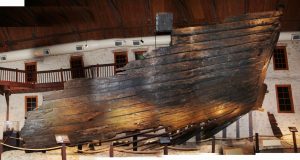
Batavia research at Flinders University Archaeology
Research by Domínguez-Delmás Daly and Flinders Associate Professor Wendy van Duivenvoorde, is carried out on Batavia’s wreck timbers, currently on display at the Western Australian Shipwrecks Museum in Fremantle. Built in Amsterdam in 1628 CE and wrecked on its maiden voyage in June 1629 CE in Western Australian waters, Batavia epitomises Dutch East India

Interview with Anthropologist Ad Borsboom
The interview (podcast) below is in in Dutch Profile Professor Ad Borsboom *Anthropologist; Research area: Aboriginal Australia. *Chair Pacific Studies Radboud University Nijmegen. *Teaching experience at all levels in Anthropology. *Publications for both scientific and general audiences (books, chapters in books, articles), editorials. See f.e. ‘De Clan van de Wilde
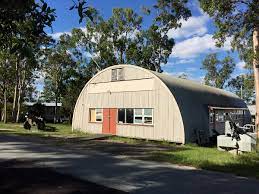
Wacol Migrant Centre Remembered 1949-1987
In the immediate post-War World years, refugees from war-torn Europe were resettled in different places across Australia. By 1949, it is estimated that one-tenth of the American/Dutch/Australian Army’s Camp Columbia area became the Wacol East Displaced Persons Holding Camp. In the early 1950s the camp was developed to become the

Nederlands Nationaal Archief – Emigratie database
In het Nationaal Archief vind je antwoorden op vragen die betrekking hebben op jouw leven, de geschiedenis van Nederland ook in relatie tot andere landen, en de samenleving. We helpen je aan nieuwe inzichten door je toegang te geven tot het nationaal geheugen. De Nederlandse consulaten in Australië hielden een
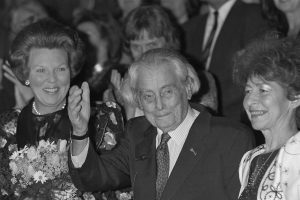
Joris Ivens – Doco Indonesia Calling
Ivens came to Australia in early 1945 as the Netherlands East Indies(NEI) Film Commissioner, to document the re-colonisation effort of the Dutch Indies from Australia. He was employed by the NEI Government Information Service (NIGIS) in Melbourne they had 128 staff—25 of these ‘Indonesians’—(a branch office of three in Sydney),
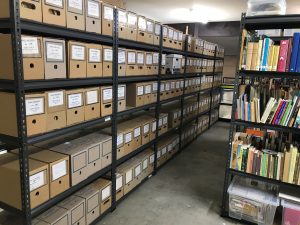
DACC Paper-based ARCHIVES
The Dutch Australian Cultural Centre was founded in 1983 and gives as its aims and objectives in its mission statement, the collection, preservation, promotion and dissemination of Dutch culture and heritage in Australia. The Centre immediately started the collection of material for the archives and Library and now, after almost

Australische archeologen op zoek naar Nederlands VOC-wrak ‘Fortuyn 16-1-2015
The Fortuyn was a ship built in 1722 and owned by the Chamber of Amsterdam of the Dutch East India Company. The ship was wrecked during her maiden voyage in 1724.[ The ship was 800 tons, had a loading capacity of 280 tons and was 44 meters long. The captain
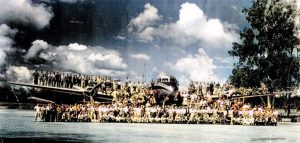
The Dutch at Archerfield Airport, Brisbane
Australian and Dutch history meet at Archerfield Airport in Brisbane. During WWII this airfield played a critical role for the Dutch military who, after the Japanese armed forces occupied the Dutch colony of Netherlands East Indies (now Indonesia) to neighboring Australia. Over 20.000 people from NEI evacuated to Australia. Poor
